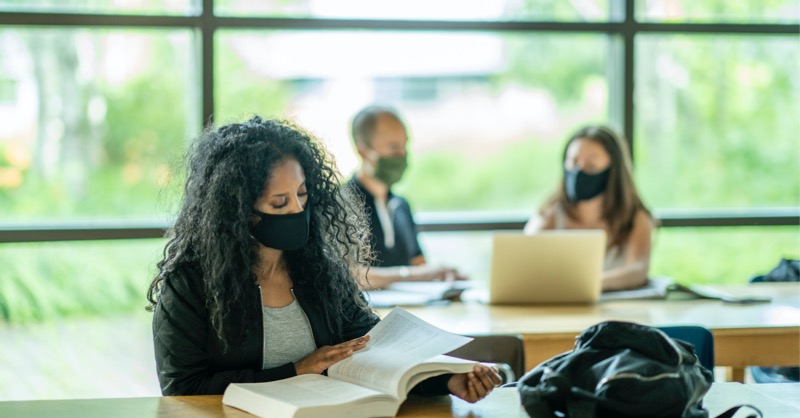40% of incoming freshmen may not attend school in the fall
Forty percent of incoming freshman who had planned to attend a four-year residential college this fall now say they will not do so or haven’t decided yet. “Students planning to attend private institutions were more likely than those at public institutions to change their minds about attending,” but private schools are also at risk of seeing smaller-than-expected classes this fall. Harvard, for example, recently announced that 20% of its incoming freshmen are deferring enrollment. “One of the issues is that students don’t trust their colleges. Only 25% of returning students strongly agree that their institutions would take the necessary steps to keep students safe. The figures are twice as high at institutions of higher education that have abandoned plans for in-person instruction in the fall as for colleges that expect students back.” The preferred choice among new students for learning this fall is to “stay at home and take classes remotely” (39%); the most popular option for returning students is to “return to campus for hybrid model” (41%).
Source: Inside Higher Ed
Most U.S. teens have non-traditional expectations for their post-high school education
Although American teenagers generally believe that higher education will play a role in their future success, “more than half are open to something other than a four-year degree and 70% want to follow their own educational path.” Researchers who surveyed 2,200 high school students aged 14 to 18 found that nearly two-thirds (64%) worry about how they’ll pay for higher education, and more than half (56%) expect the government to “provide additional money to help pay off their loans.” Although only 21% “are confident in the world’s future,” 65% are confident in their “personal future” and 84% “believe their job prospects are equal to or better than their parents’ generation.” In addition, even though “74% believe a skills-based education (e.g., trade skills, nursing, STEM, etc.) makes sense in today’s world… 61% said the top place to learn is on the job.”
Source: eCampus News
Nearly one in three students say they won’t feel safe on campus this fall
Almost one-third (31%) of recently surveyed students “fear they will not be safe at their college or university,” and even more (36%) worry about contacting Covid-19. Although 68% trust the “essential information given to them by their schools… the majority (78%) also have some of level of distrust with campus health care facilities to treat sick students.” Regarding health care costs, more than half reported that their parents pay, but fewer than one third said they understand their coverage. Faced with the prospect of sharing accommodations with a roommate during the school year, “Males (25%) were more likely to feel ‘very safe’ about returning to college this fall when compared to females (12%). Additionally, males more than females are more likely to trust their fellow students to follow social distancing guidelines, 19% and 9% respectively.”
Source: PR Newswire
People in “fragile communities” value higher education, but doubt their ability to attend
“While people living in America’s most fragile communities place a high value on a college education, less than a third strongly agree that people in their neighborhoods will have access to it,” according to a new report. A fragile community is “a census tract that scores in the bottom quartile on three out of four socioeconomic criteria: employment, education, poverty and a composite index of wellbeing. A high percentage of people who live in fragile communities are struggling in their daily lives and have limited opportunities for social mobility.” Only about 10% of those who live in fragile communities have a bachelor’s degree, compared with about 33% of U.S. adults overall. “A strong majority — 79% — of fragile community residents said a college education is ‘very important’ (55%) or ‘important’ (24%). Black (67%) and Hispanic (60%) residents were much more likely than white residents (37%) to say it is ‘very important.’ And women were more likely (59%) to say a college education was ‘very important’ than were men (50%).” However, only 28% of fragile community residents “believe that people in their area have access to an affordable college education if they want it.”
Source: Forbes
